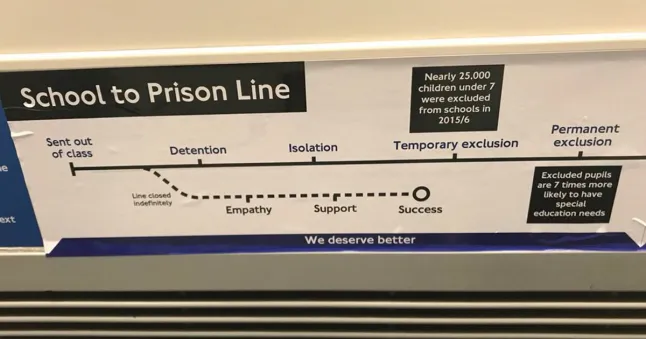Tomorrow the several thousand students studying Latin across the UK will sit their language examination. The Boards clearly collaborate when it comes to exam timetabling, so both OCR and Eduqas/WJEC have their Latin language examinations on the timetable tomorrow, both of them setting a paper that lasts and hour and a half.
Having worked with both Boards for three years now and having worked proactively through the existing past papers for both Boards in somewhat obsessive detail, I consider myself something of an expert on the quirks of each. Broadly, the Boards take a markedly different approach to examination, although they have a couple of interesting quirks in common. For example, both Boards seem somewhat obsessed with candidates noticing whether or not an adjective is in the superlative, including when that superlative is irregular. Personally, I don’t really understand why it is so crucially important that candidates translate plurimi as “very many” rather than just “many”, but for whatever reason, both Boards are very keen on it. Neither Board lists the irregular comparatives and superlatives as separate vocabulary, which given their obsession with their accurate translation seems a drastic oversight to me.
The language exam for OCR has a much longer history than Eduqas, which is the relatively new kid on the block for Latin. Those who taught the subject prior to the examination reforms in 2018 will understand why the OCR paper is divided into two sections, which bear no relation to each other: Section A represents what used to be Paper 1 and Section B what used to be Paper 2: the Board have simply merged what used to be two language papers into one, which I remember thinking at the time was quite extraordinarily lazy and has made for the current exam seeming bizarrely disjointed. Section A, worth 30 marks, consists of a 16-mark comprehension, a 4-mark derivatives question and then a choice between some grammar questions based on the comprehension passage or three English to Latin sentences. I always advise candidates to attempt the grammar questions as these are relatively straightforward (although considerably harder than the ones on the Eduqas paper). The grammar questions are quite ridiculously predictable and it is easy to drill even the weakest candidates to get full marks or close to full marks on this section. Section B of the OCR paper starts with a completely new story and contains a longer comprehension followed by a translation, which is worth 50% of the candidates’ overall marks. Section B is considerably harder than Section A and candidates do need to be aware that 50% of their overall mark is represented by that final translation passage.
Eduqas takes a completely different approach, one which followed the spirit of traditional “momentum” tests of old: the same storyline is maintained throughout most of the paper (which seems much more sensible), and what is labelled “Section A” is 90% of the paper: it consists of a short passage for comprehension, two short passages for translation and then a longer comprehension at the end; because the story is continuous, candidates benefit from completing the paper in order. Section B is worth only 10% and consists of a choice between some English into Latin sentences or some quite remarkably simple grammar questions, based on a very short and very simple passage of Latin, which is not even close to the complexity of the rest of the paper. As for OCR, the grammar questions are repetitive and predictable, thus it is easy once again to drill candidates to gain full marks on this section.
One notable quirk of Eduqas, and it is one I dislike, is that they seem particularly keen on candidates being able to follow the story. The reason I dislike this is I feel it advantages students who come from a background of traditional schooling, who may know the story involved. Candidates are often asked to infer things that are not actually contained in the passage and I find this unfair as those who have spent time in the prep school system or know the ancient stories from general interest may well find themselves better off. Another thing I dislike about the way that Eduqas examines candidates is that it uses a huge number of multiple choice questions, many of which seem specifically designed to trick candidates. They will, for example, encourage candidates to select the wrong meaning of words that are easy to mix up. That said, their approach to derivatives is much more benevolent: OCR seem ludicrously wedded to the idea of forcing candidates to define the meaning of the derivative they select, which I simply do not understand. I generally dislike questions about derivatives as again I feel they disadvantage candidates from certain backgrounds; they certainly disadvantage those for whom English is their second language, especially if that language is not European.
I am reaching the point where I know the vocabulary lists pretty well for both Boards, and there is roughly a 90% crossover. If anything, Eduqas has more words that are easy to mix up due to its inclusion of adiuvo (often confused with audio) and pareo (often confused with paro). That said, OCR included the word liber (book) as well as liberi (children), whereas Eduqas only has the latter. Both Boards have both iacio and iaceo, a nightmare to distinguish, and they also both have puto as well as peto, neco as well as nescio. All of these are regular traps that candidates fall into. When it comes to irregular verbs, OCR has more of these and includes the particularly awkward verb malo, which in my experience is massively undertaught in schools, which all focus on volo and nolo (as per the Cambridge Latin Course) and do not appear to teach malo discretely at all. Eduqas do not included it on their list.
As candidates make their final preparations for the exam one can only hope, as ever, that we have prepared them for the relevant pitfalls to the best of our ability. Michael Gove once said that he wanted to eliminate teachers’ ability to teach to the test but I’m afraid he has failed dismally in that department. While results continue to matter, teachers will continue to prepare candidates for the specific exam that they are facing. Not to do so would be sheer negligence.







